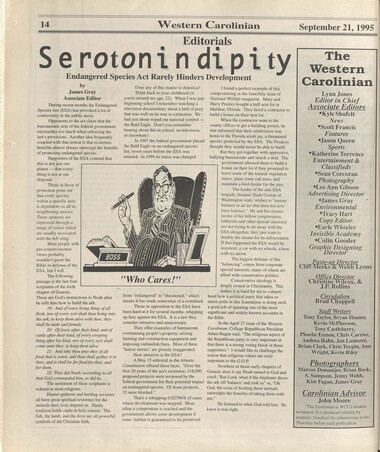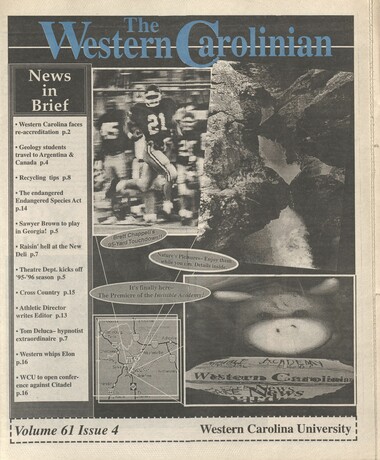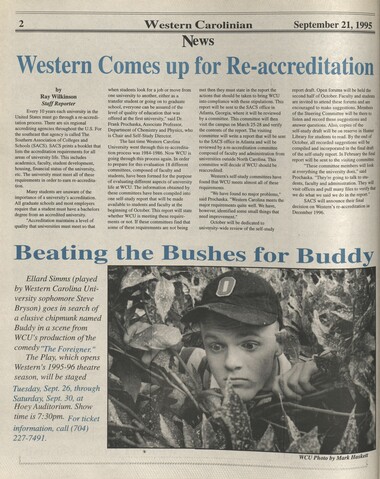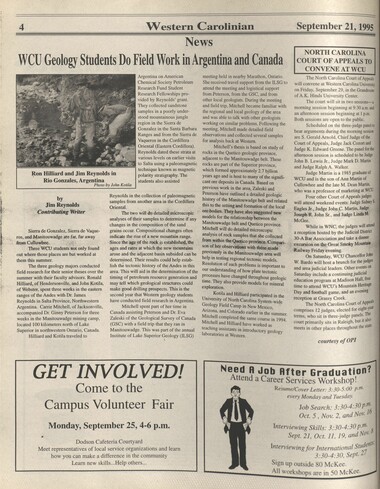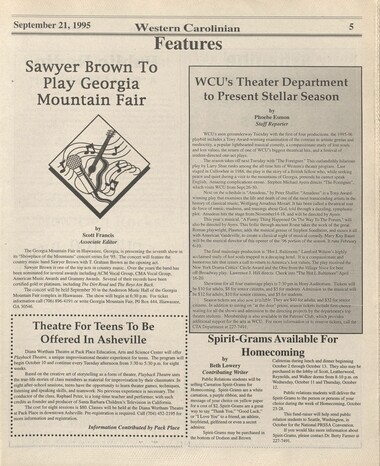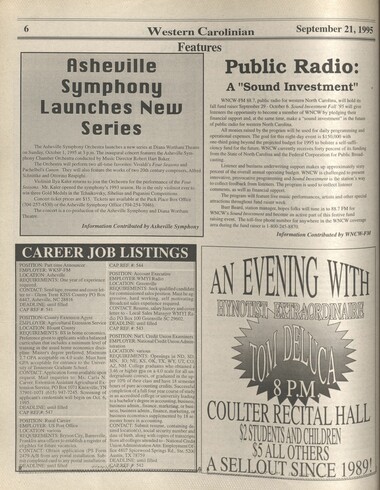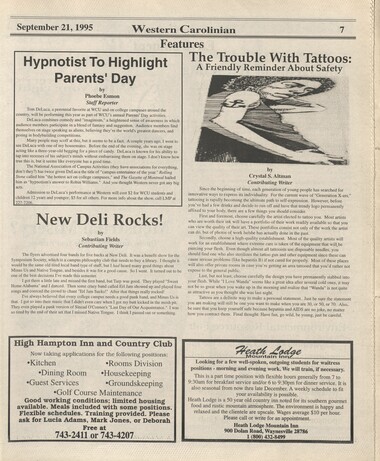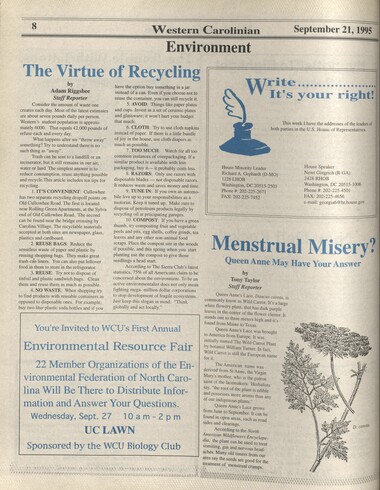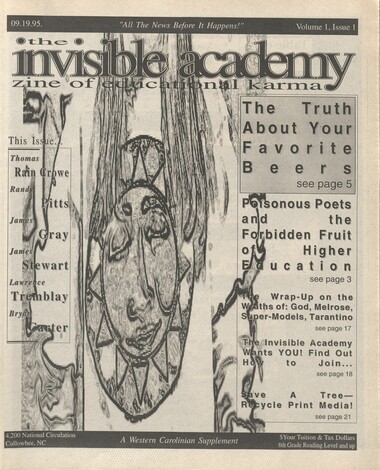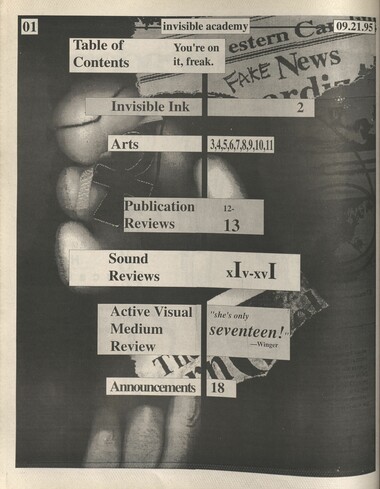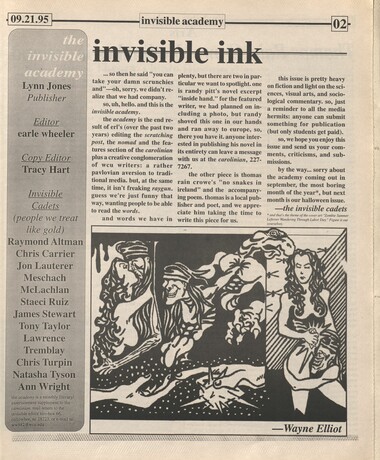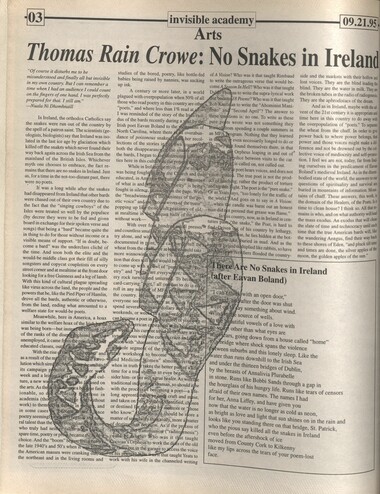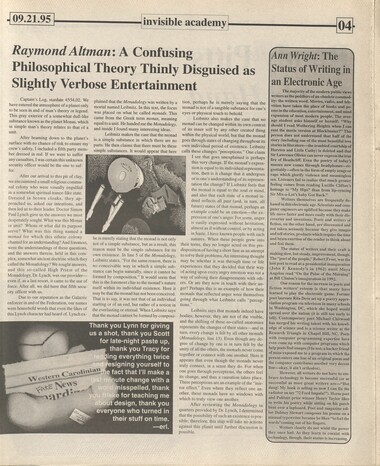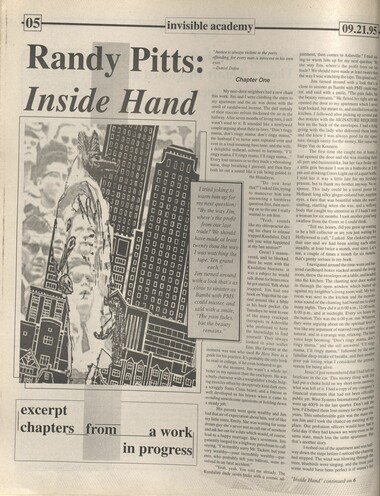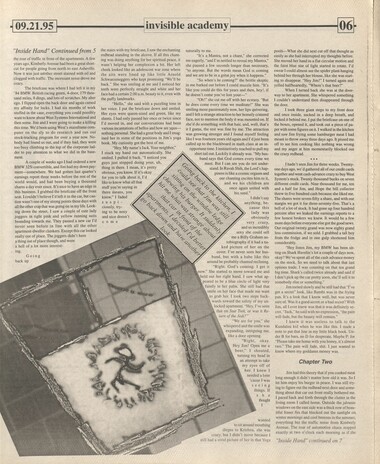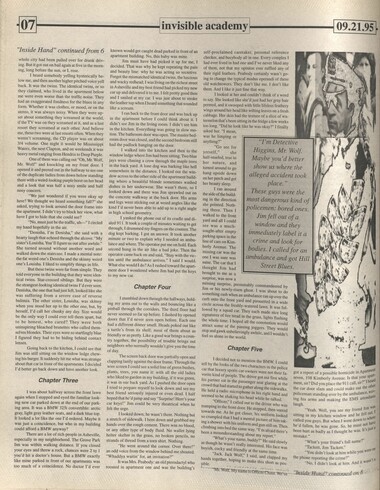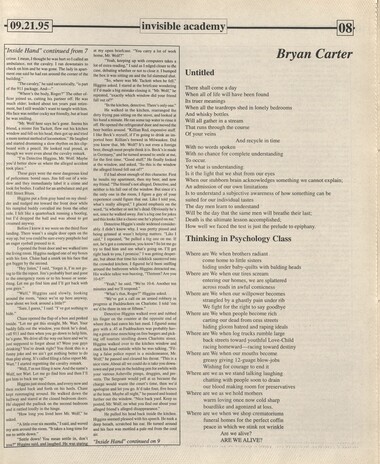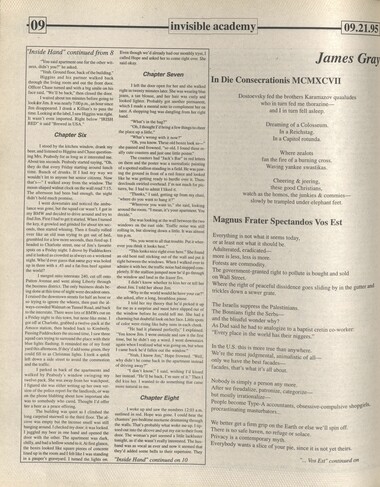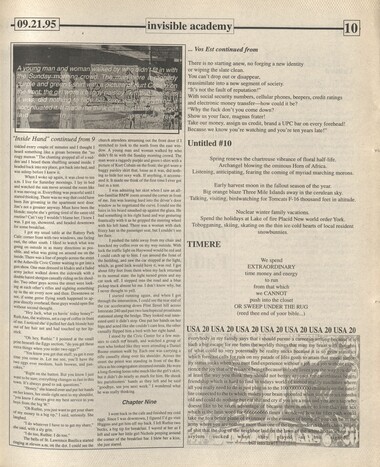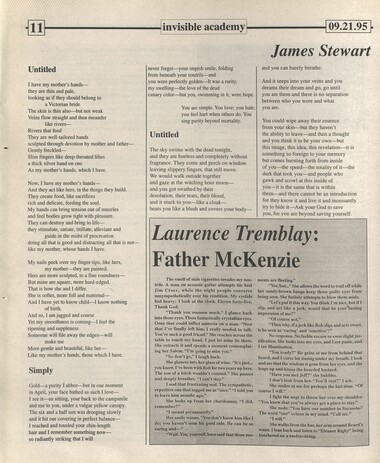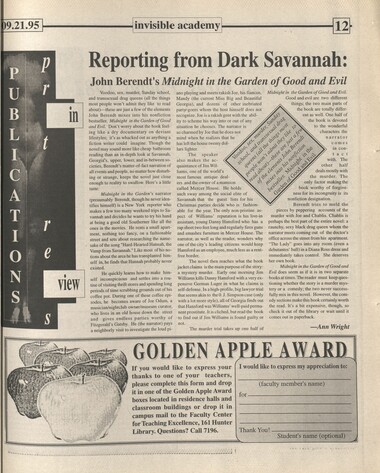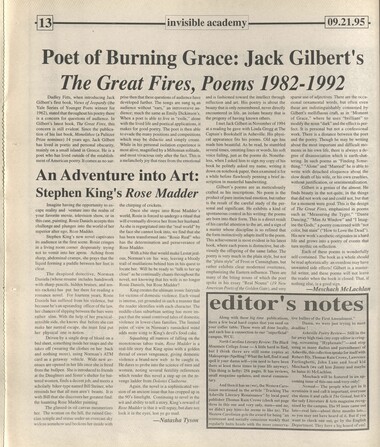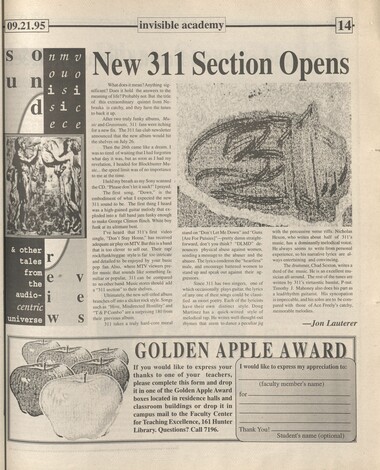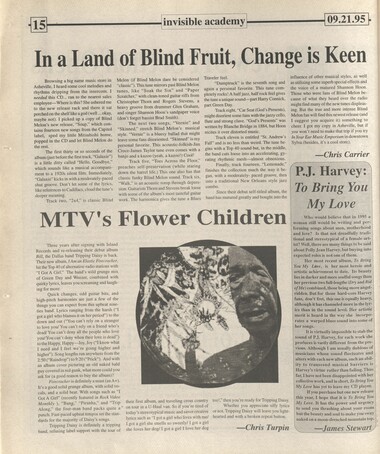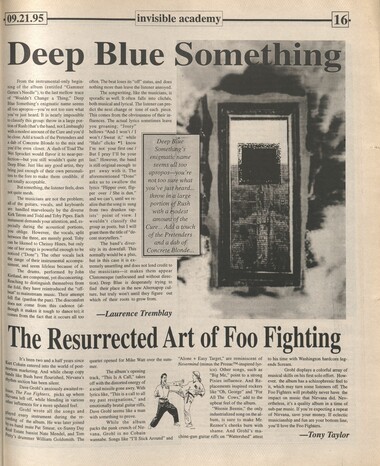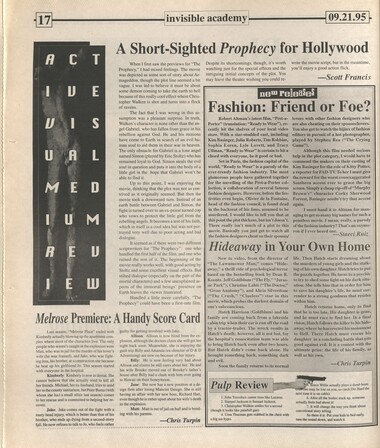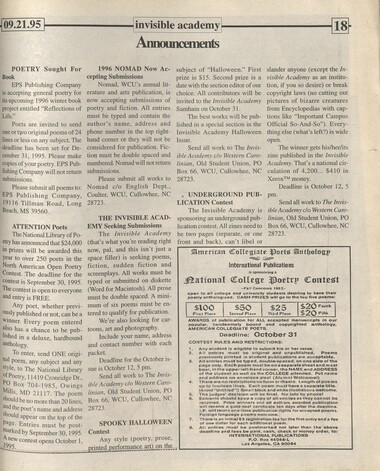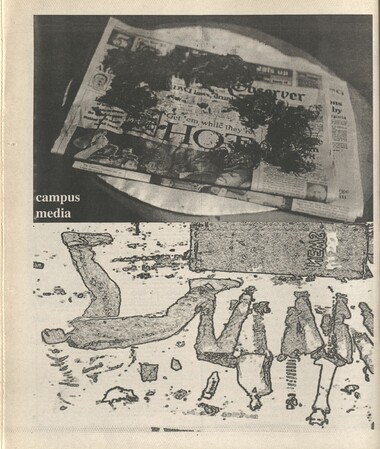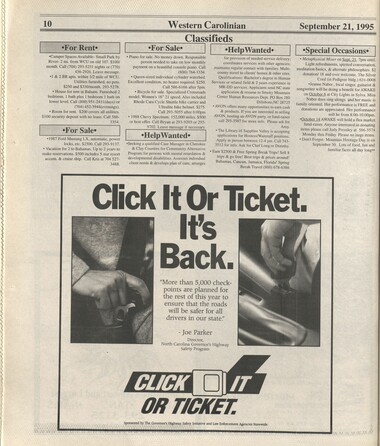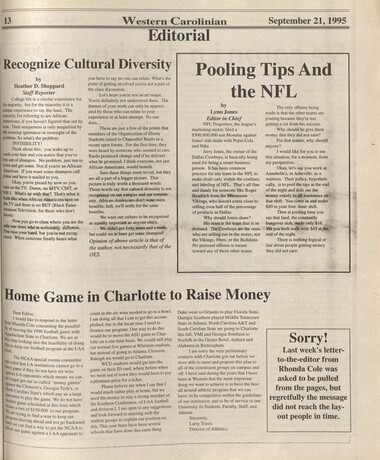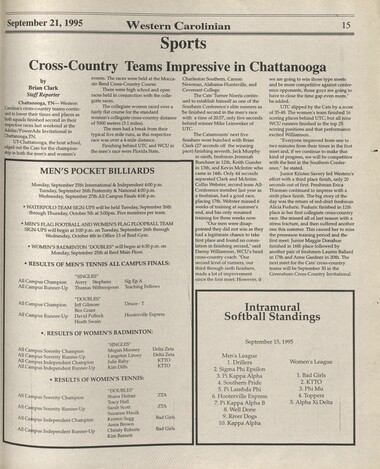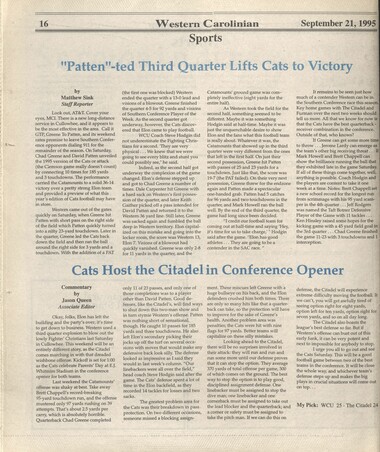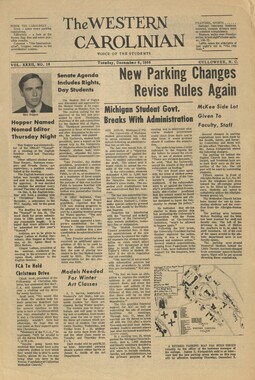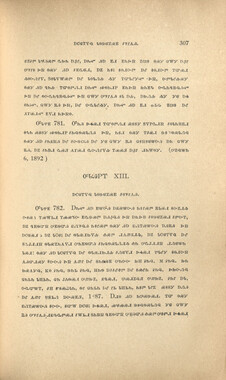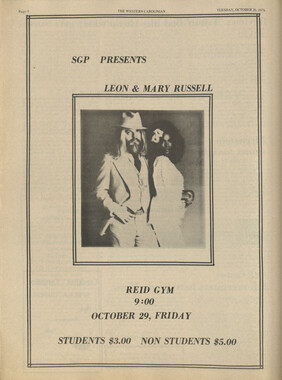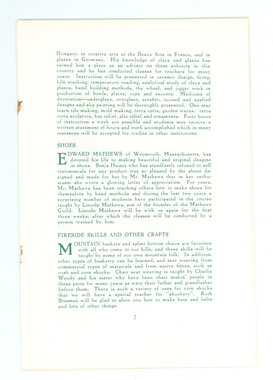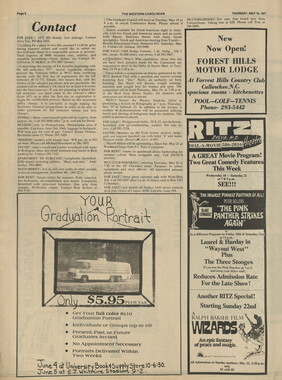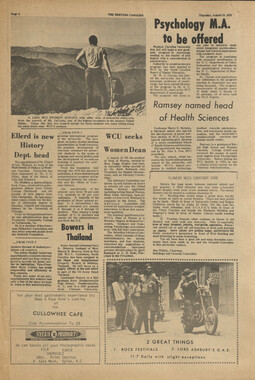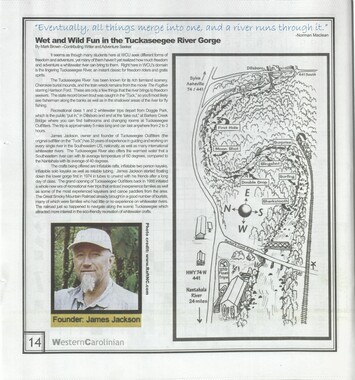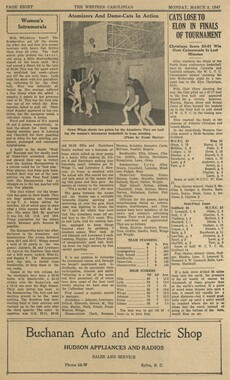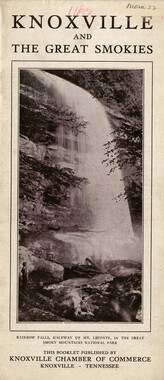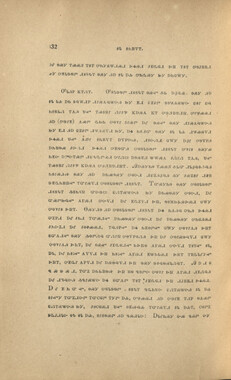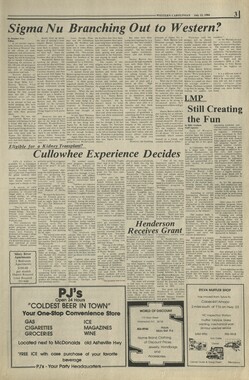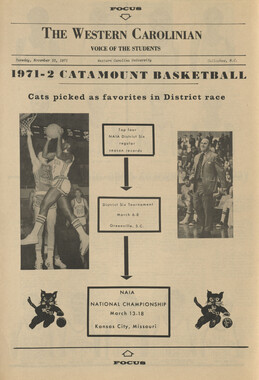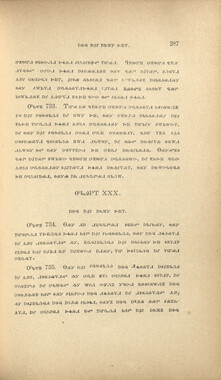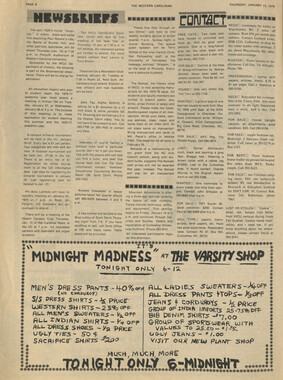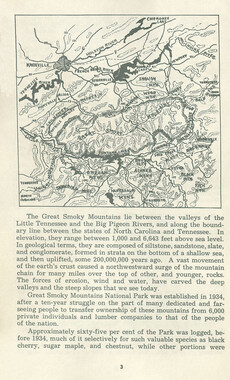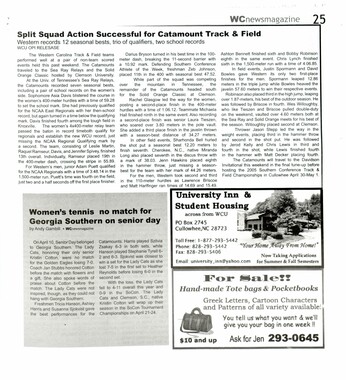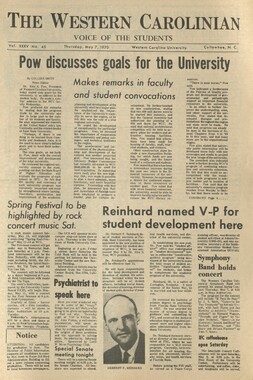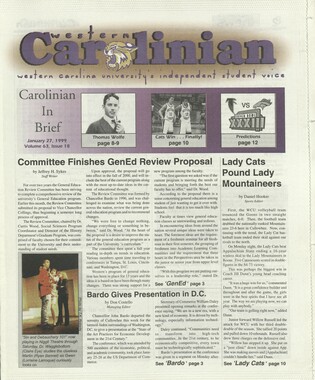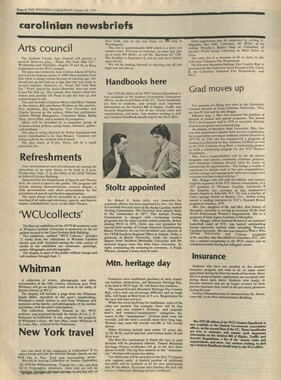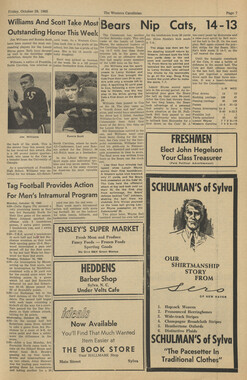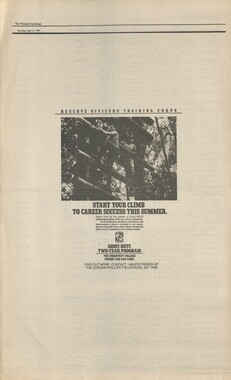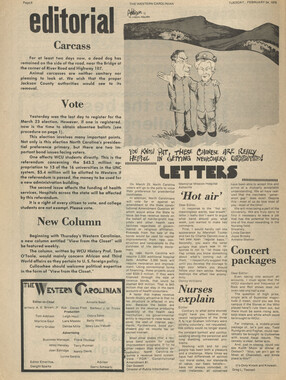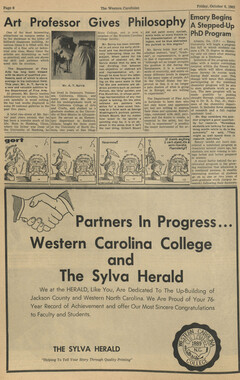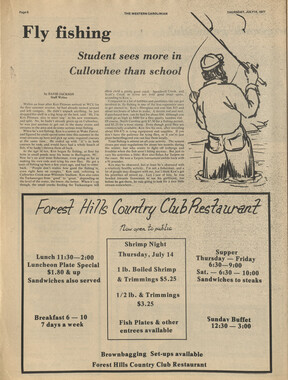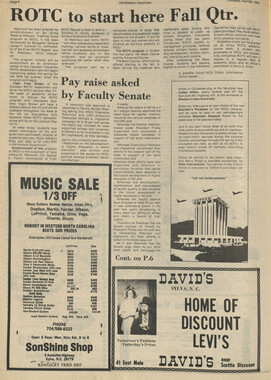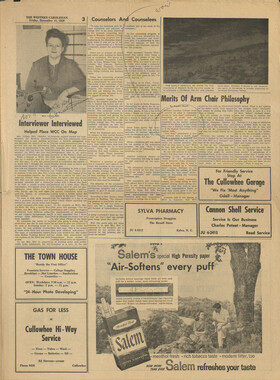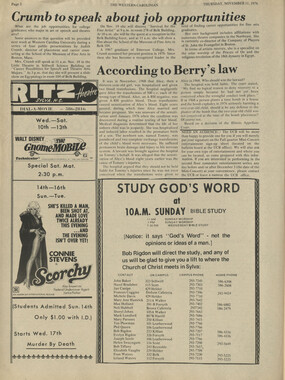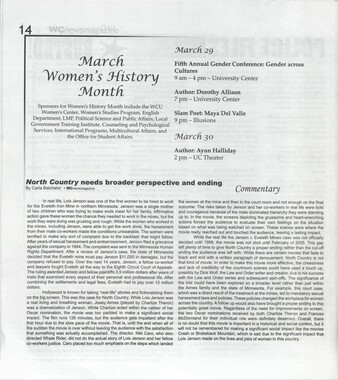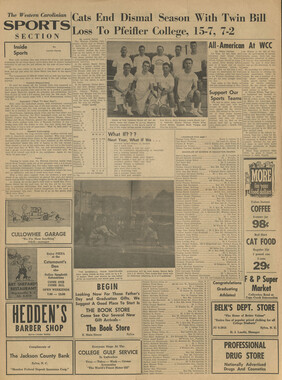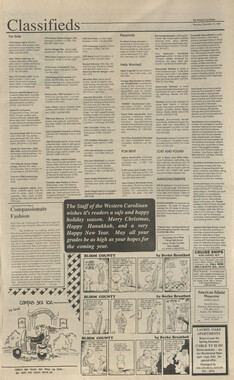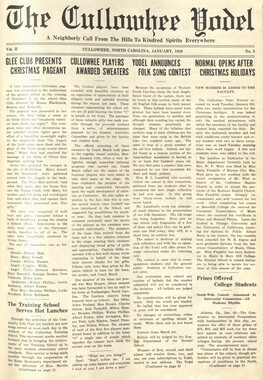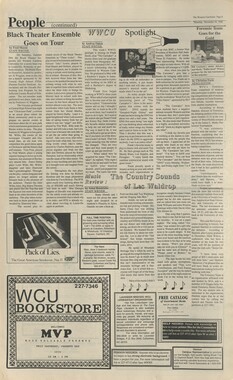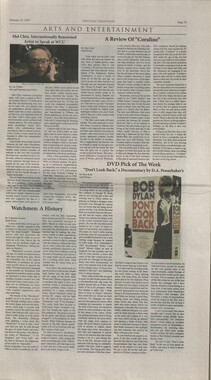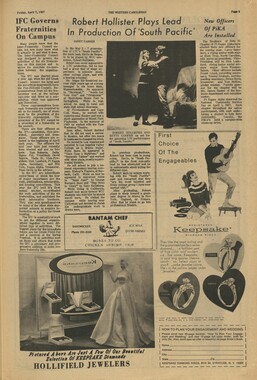Western Carolina University (21)
View all
- Canton Champion Fibre Company (2308)
- Cherokee Traditions (291)
- Civil War in Southern Appalachia (165)
- Craft Revival (1942)
- George Masa Collection (135)
- Great Smoky Mountains - A Park for America (2901)
- Highlights from Western Carolina University (422)
- Horace Kephart (941)
- Journeys Through Jackson (159)
- LGBTQIA+ Archive of Jackson County (85)
- Oral Histories of Western North Carolina (314)
- Picturing Appalachia (6798)
- Stories of Mountain Folk (413)
- Travel Western North Carolina (153)
- Western Carolina University Fine Art Museum Vitreograph Collection (129)
- Western Carolina University Herbarium (92)
- Western Carolina University: Making Memories (738)
- Western Carolina University Publications (2491)
- Western Carolina University Restricted Electronic Theses and Dissertations (146)
- Western North Carolina Regional Maps (71)
- World War II in Southern Appalachia (131)
University of North Carolina Asheville (6)
View all
- Allanstand Cottage Industries (62)
- Appalachian National Park Association (53)
- Bennett, Kelly, 1890-1974 (1463)
- Berry, Walter (76)
- Brasstown Carvers (40)
- Carver, George Washington, 1864?-1943 (26)
- Cathey, Joseph, 1803-1874 (1)
- Champion Fibre Company (233)
- Champion Paper and Fibre Company (297)
- Cherokee Indian Fair Association (16)
- Cherokee Language Program (22)
- Crowe, Amanda (40)
- Edmonston, Thomas Benton, 1842-1907 (7)
- Ensley, A. L. (Abraham Lincoln), 1865-1948 (275)
- Fromer, Irving Rhodes, 1913-1994 (70)
- George Butz (BFS 1907) (46)
- Goodrich, Frances Louisa (120)
- Grant, George Alexander, 1891-1964 (96)
- Heard, Marian Gladys (60)
- Kephart, Calvin, 1883-1969 (15)
- Kephart, Horace, 1862-1931 (313)
- Kephart, Laura, 1862-1954 (39)
- Laney, Gideon Thomas, 1889-1976 (439)
- Masa, George, 1881-1933 (61)
- McElhinney, William Julian, 1896-1953 (44)
- Niggli, Josephina, 1910-1983 (10)
- North Carolina Park Commission (105)
- Osborne, Kezia Stradley (9)
- Owens, Samuel Robert, 1918-1995 (11)
- Penland Weavers and Potters (36)
- Roberts, Vivienne (15)
- Roth, Albert, 1890-1974 (142)
- Schenck, Carl Alwin, 1868-1955 (1)
- Sherrill's Photography Studio (2565)
- Southern Highland Handicraft Guild (127)
- Southern Highlanders, Inc. (71)
- Stalcup, Jesse Bryson (46)
- Stearns, I. K. (213)
- Thompson, James Edward, 1880-1976 (226)
- United States. Indian Arts and Crafts Board (130)
- USFS (683)
- Vance, Zebulon Baird, 1830-1894 (1)
- Weaver, Zebulon, 1872-1948 (58)
- Western Carolina College (230)
- Western Carolina Teachers College (282)
- Western Carolina University (2008)
- Western Carolina University. Mountain Heritage Center (18)
- Whitman, Walt, 1819-1892 (10)
- Wilburn, Hiram Coleman, 1880-1967 (73)
- Williams, Isadora (3)
- Cain, Doreyl Ammons (0)
- Crittenden, Lorraine (0)
- Rhodes, Judy (0)
- Smith, Edward Clark (0)
- Appalachian Region, Southern (2693)
- Asheville (N.C.) (1936)
- Avery County (N.C.) (26)
- Blount County (Tenn.) (195)
- Buncombe County (N.C.) (1672)
- Cherokee County (N.C.) (283)
- Clay County (N.C.) (556)
- Graham County (N.C.) (236)
- Great Smoky Mountains National Park (N.C. and Tenn.) (519)
- Haywood County (N.C.) (3569)
- Henderson County (N.C.) (70)
- Jackson County (N.C.) (4913)
- Knox County (Tenn.) (35)
- Knoxville (Tenn.) (13)
- Lake Santeetlah (N.C.) (10)
- Macon County (N.C.) (420)
- Madison County (N.C.) (215)
- McDowell County (N.C.) (39)
- Mitchell County (N.C.) (132)
- Polk County (N.C.) (35)
- Qualla Boundary (982)
- Rutherford County (N.C.) (76)
- Swain County (N.C.) (2182)
- Transylvania County (N.C.) (270)
- Watauga County (N.C.) (12)
- Waynesville (N.C.) (86)
- Yancey County (N.C.) (72)
- Aerial Photographs (3)
- Aerial Views (60)
- Albums (books) (4)
- Articles (1)
- Artifacts (object Genre) (228)
- Bibliographies (1)
- Biography (general Genre) (2)
- Cards (information Artifacts) (38)
- Clippings (information Artifacts) (191)
- Copybooks (instructional Materials) (3)
- Crafts (art Genres) (622)
- Depictions (visual Works) (21)
- Design Drawings (1)
- Drawings (visual Works) (185)
- Envelopes (73)
- Exhibitions (events) (1)
- Facsimiles (reproductions) (1)
- Fiction (general Genre) (4)
- Financial Records (12)
- Fliers (printed Matter) (67)
- Glass Plate Negatives (381)
- Guidebooks (2)
- Internegatives (10)
- Interviews (815)
- Land Surveys (102)
- Letters (correspondence) (1013)
- Manuscripts (documents) (618)
- Maps (documents) (177)
- Memorandums (25)
- Minutes (administrative Records) (59)
- Negatives (photographs) (6090)
- Newsletters (1290)
- Newspapers (2)
- Notebooks (8)
- Occupation Currency (1)
- Paintings (visual Works) (1)
- Pen And Ink Drawings (1)
- Periodicals (193)
- Personal Narratives (10)
- Photographs (12976)
- Plans (maps) (1)
- Poetry (5)
- Portraits (4568)
- Postcards (329)
- Programs (documents) (181)
- Publications (documents) (2443)
- Questionnaires (65)
- Relief Prints (26)
- Sayings (literary Genre) (1)
- Scrapbooks (282)
- Sheet Music (2)
- Slides (photographs) (402)
- Songs (musical Compositions) (2)
- Sound Recordings (796)
- Specimens (92)
- Speeches (documents) (18)
- Tintypes (photographs) (8)
- Transcripts (322)
- Video Recordings (physical Artifacts) (23)
- Text Messages (0)
- A.L. Ensley Collection (275)
- Appalachian Industrial School Records (7)
- Appalachian National Park Association Records (336)
- Axley-Meroney Collection (2)
- Bayard Wootten Photograph Collection (20)
- Bethel Rural Community Organization Collection (7)
- Blumer Collection (5)
- C.W. Slagle Collection (20)
- Canton Area Historical Museum (2110)
- Carlos C. Campbell Collection (462)
- Cataloochee History Project (64)
- Cherokee Studies Collection (4)
- Daisy Dame Photograph Album (5)
- Daniel Boone VI Collection (1)
- Doris Ulmann Photograph Collection (112)
- Elizabeth H. Lasley Collection (1)
- Elizabeth Woolworth Szold Fleharty Collection (4)
- Frank Fry Collection (95)
- George Masa Collection (173)
- Gideon Laney Collection (452)
- Hazel Scarborough Collection (2)
- Hiram C. Wilburn Papers (28)
- Historic Photographs Collection (236)
- Horace Kephart Collection (861)
- Humbard Collection (33)
- Hunter and Weaver Families Collection (1)
- I. D. Blumenthal Collection (4)
- Isadora Williams Collection (4)
- Jesse Bryson Stalcup Collection (47)
- Jim Thompson Collection (224)
- John B. Battle Collection (7)
- John C. Campbell Folk School Records (80)
- John Parris Collection (6)
- Judaculla Rock project (2)
- Kelly Bennett Collection (1482)
- Love Family Papers (11)
- Major Wiley Parris Civil War Letters (3)
- Map Collection (12)
- McFee-Misemer Civil War Letters (34)
- Mountain Heritage Center Collection (4)
- Norburn - Robertson - Thomson Families Collection (44)
- Pauline Hood Collection (7)
- Pre-Guild Collection (2)
- Qualla Arts and Crafts Mutual Collection (12)
- R.A. Romanes Collection (681)
- Rosser H. Taylor Collection (1)
- Samuel Robert Owens Collection (94)
- Sara Madison Collection (144)
- Sherrill Studio Photo Collection (2558)
- Smoky Mountains Hiking Club Collection (616)
- Stories of Mountain Folk - Radio Programs (374)
- The Reporter, Western Carolina University (510)
- Venoy and Elizabeth Reed Collection (16)
- WCU Gender and Sexuality Oral History Project (32)
- WCU Mountain Heritage Center Oral Histories (25)
- WCU Oral History Collection - Mountain People, Mountain Lives (71)
- WCU Students Newspapers Collection (1923)
- Western North Carolina Tomorrow Black Oral History Project (69)
- William Williams Stringfield Collection (2)
- Zebulon Weaver Collection (109)
- African Americans (390)
- Appalachian Trail (35)
- Artisans (521)
- Cherokee art (84)
- Cherokee artists -- North Carolina (10)
- Cherokee language (21)
- Cherokee pottery (101)
- Cherokee women (208)
- Church buildings (190)
- Civilian Conservation Corps (U.S.) (111)
- College student newspapers and periodicals (2012)
- Dams (107)
- Dance (1023)
- Education (222)
- Floods (61)
- Folk music (1015)
- Forced removal, 1813-1903 (2)
- Forest conservation (220)
- Forests and forestry (1195)
- Gender nonconformity (4)
- Great Smoky Mountains National Park (N.C. and Tenn.) (181)
- Hunting (45)
- Landscape photography (25)
- Logging (119)
- Maps (83)
- Mines and mineral resources (8)
- North Carolina -- Maps (18)
- Paper industry (38)
- Postcards (255)
- Pottery (135)
- Railroad trains (72)
- Rural electrification -- North Carolina, Western (3)
- School integration -- Southern States (2)
- Segregation -- North Carolina, Western (5)
- Slavery (5)
- Sports (452)
- Storytelling (243)
- Waterfalls -- Great Smoky Mountains (N.C. and Tenn.) (66)
- Weaving -- Appalachian Region, Southern (280)
- Wood-carving -- Appalachian Region, Southern (328)
- World War, 1939-1945 (173)
Western Carolinian Volume 61 Number 04 (05)
Item
Item’s are ‘child’ level descriptions to ‘parent’ objects, (e.g. one page of a whole book).
-
-
14 Western Carolinian September 21,1995 Editorials Seroton inch, pity Endangered Species Act Rarely Hinders Development by James Gray Associate Editor During recent months the Endangered Species Act (ESA) has provoked a lot of controversy in the public arena. Opponents to the act claim that the bureaucratic arm of the federal government encroaches too much when enforcing the law's provisions. Another idea frequently coupled with that notion is that economic benefits almost always outweigh the benefits of protecting endangered species. Supporters of the ESA contend that this is not just our planet — that everything is not at our disposal. Those in favor of protection point out that every species within a specific area is dependent on all its neighboring species. These opinions are expressed through a range of voices which are usually associated with the left wing. Most people with pro-conservationist views probably wouldn't quote the Bible in defense of the ESA, but I will. The following passage is the last four scriptures of the sixth chapter of Genesis. These are God's instructions to Noah after he tells him how to build the ark: 19: And of every living thing of all flesh, two of every sort shalt thou bring into the ark, to keep them alive with thee; they shall be male and female. 20: Of fowls after their kind, and of cattle after their kind, of every creeping thing after his kind, two of every sort shall come unto thee, to keep them alive. 21: And take thou unto thee of all food that is eaten, and thou shalt gather it to thee; and it shall be for food for thee, and for them. 22: Thus did Noah; according to all that God commanded him, so did he. The sentiment of these scriptures is echoed in most religions. Hunter-gatherer and herding societies all have great spiritual reverence for the animals their lives depend on. Hindu tradition holds cattle in holy esteem. The fish, the lamb, and the dove are all powerful symbols of the Christian faith. Does any of this matter to America? Think back to your childhood (if you're around my age, 22). When I was just beginning school I remember watching a television documentary about a bird of prey that was well on its way to extinction. We had just about wiped our national symbol — the Bald Eagle. Don't you remember hearing about this in school, on television, or elsewhere? In 1967 the federal government placed the Bald Eagle on an endangered species list, seven years before the ESA was enacted. In 1994 its status was changed from "endangered" to "threatened," which means it has made somewhat of a comeback Those in opposition to the ESA have been hard at it for several months, whipping up fury against the ESA. It is a law they consider intrusive and unnecessary. They offer examples of bureaucrats overrunning people's property, seizing farming and construction equipment and imposing outlandish fines. Most of these "horror stories" are grossly exaggerated. How intrusive is the ESA? A May 15 editorial in the Atlanta Constitution offered these facts: "Over the first 20 years of the act's existence, 118,000 proposed projects were reviewed by the federal government for their potential impact on endangered species. Of those projects, 33 were blocked." That's a whopping 0.02796% of cases where development was stopped. Most often a compromise is reached and the government allows some development if some habitat is guaranteed to be preserved. I found a perfect example of this compromising in the June/July issue of National Wildlife magazine. Mary and Harry Presley bought a half-acre lot in Malabar, Florida. They hired a contractor to build a house on their new lot. When the contractor went to the county offices to get a building permit, he was informed that their subdivision was home to the Florida scrub jay, a threatened species protected by the ESA. The Presleys thought they would never be able to build. But they got together with oppressive, bullying bureaucrats and struck a deal. The government allowed them to build a house on their lot if they promised to leave some of the natural vegetation intact, plant some oak trees, and maintain a bird-feeder for the jays. The leader of the anti-ESA brigade, Senator Slade Gorton of Washington state, wishes to "restore balance to an act that does not now have balance." He and his cronies (some of his fellow congressmen, lobbyists and other special interests) are not trying to do away with the ESA altogether, they just want to disable the means for its enforcement. If that happened the ESA would be impotent, a car with no wheels, a bow with no arrow. The biggest defense of this "balancing" comes from corporate special interests, many of whom are allied with conservative politics. Conservative ideology is deeply rooted in Christianity. This makes it is hard for me to comprehend how a political party that takes so much pride in this foundation is doing such a good job of ignoring one of the most significant and widely known accounts in the Bible. In the April 27 issue of the Western Carolinian, College Republican President Adam Ragan said, "The religious aspect of the Republican party is very important in that there is a strong voting block in those supporters." I would like to challenge the notion that religious values are truly important to the G.O.P. Nowhere in those early chapters of Genesis does it say Noah turned to God and cried, "But Lord, what if the elephants throw the ark off 'balance' and sink us" or, "Oh God, the costs of feeding these animals outweighs the benefits of taking them with me." He listened to what God told him. He knew it was right. The Western Carolinian Lynn Jones Editor in Chief Associate Editors •KyleShufelt News •Scott Francis Features •Jason Queen Sports •Katherine Torrence Entertainment & Classifieds •Sean Corcoran Photography •Lee Ann Gibson Advertising Director •James Gray Environmental •Tracy Hart Copy Editor •Earle Wheeler Invisible Academy •Colin Gooder Graphic Designing Director Paste-up Director Cliff Meeks& Webb Lyons Office Director Christine Wilcox, & J.P.Rollins Circulation Brad Chappell Staff Writers Tony Taylor, Bryan Hunter, Kevin McPherson, Tony Castleberry, Phoebe Esmon, Chris Carrier, Andrea Hahn, Jon Lauterer, Brian Clark, Chris Turpin, Ann Wright, Kevin Riley Photographers Marcus Demaaijer, Brian Bock, S. Sampson, Jenny Webb, Kim Fagan, James Gray Carolinian Advisor John Moore The Carolinian is WCU's student newpaper. It is produced entirely by students. Deadline for submissions is the Thursday before each publication.
Object
Object’s are ‘parent’ level descriptions to ‘children’ items, (e.g. a book with pages).
-
The Western Carolinian is Western Carolina University's student-run newspaper. The paper was published as the Cullowhee Yodel from 1924 to 1931 before changing its name to The Western Carolinian in 1933.
-
